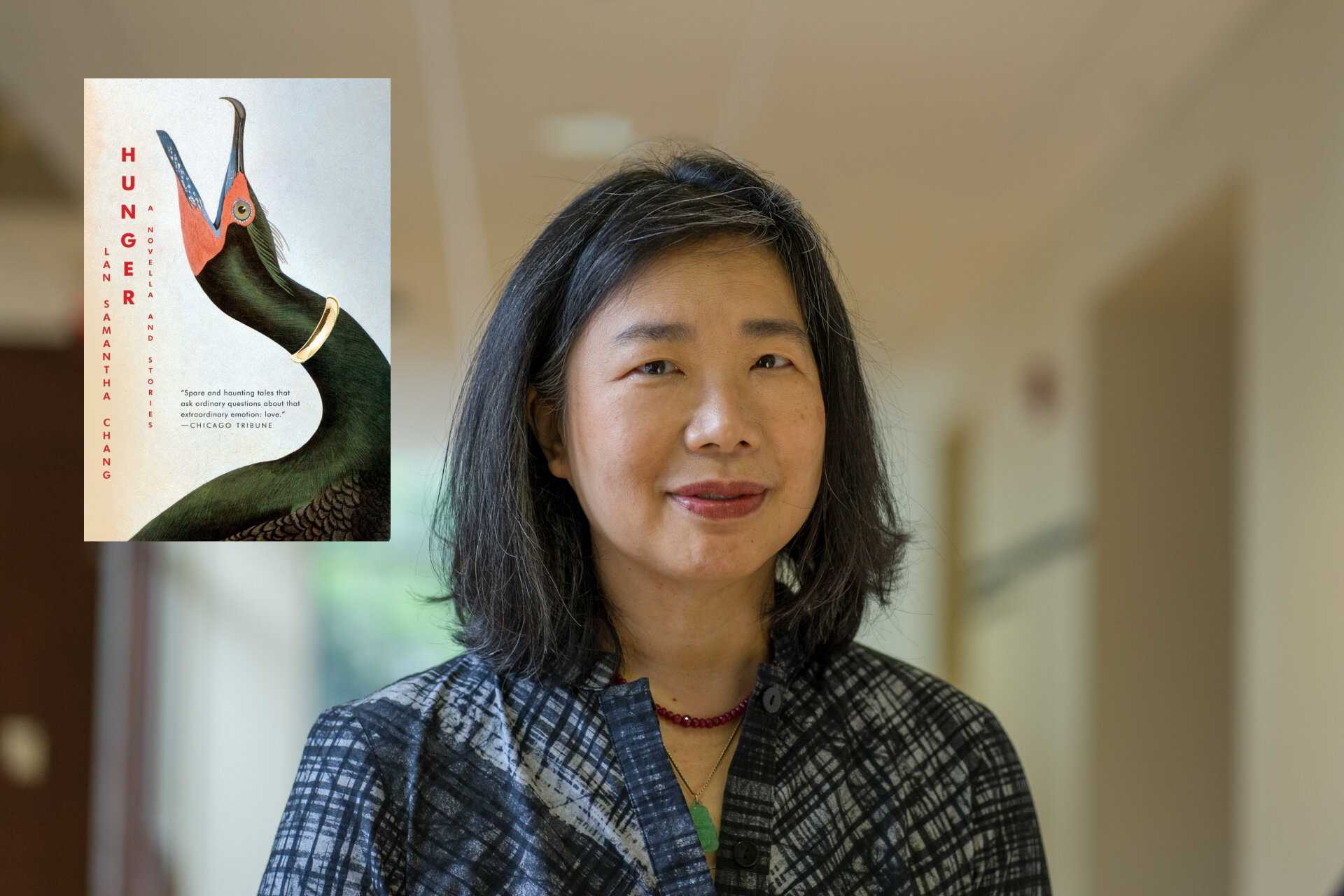
Lan Chang captures the Asian immigrant story and cultural experience with widely engaging and vivid prose as each page and every story contemplate why we are so desperate for love despite its destructive nature.
As a part of the generation who never knew the world without technology, my attention span never stood a chance during the pandemic. Long stagnant periods of time were stitched together with quick and immediate sources of entertainment like social media. I recognized the hours of screen time quickly accumulating on my phone and immediately wanted to revert back to hobbies I once loved as a child. I wanted to start reading again.
When stores began to open up again, I immediately found myself in the bookstore. I remember walking into Barnes and Nobles and being drawn to the pale blue-yellow cover of “Hunger” that bore a crane with a curved neck. Never before had I gravitated toward short stories because they never seem to satiate me in the same way full novels do, but I bought “Hunger” without much contemplation in the hopes that it would help reinvigorate my patience. I didn’t touch it for months. I eventually brought the novel to school in the hopes that I would find enough downtime to finish it, and when I finally picked it up I could hardly put it down.
“Hunger” begins with the titular novella and is followed by a series of short stories. Through the lens of the Asian American immigrant experience, each story serves to comment on the havoc unleashed on the body and mind as a result of the pursuit and desire of love. For Chang, love is a pit in the stomach. It is as malleable as youth. If it’s nurtured and watered, a person’s relationship with love will grow healthily alongside them. If neglected, it will sit uncomfortably, painfully even. Neither pit stops craving, but those neglected can feel aches echoing through their bones as they cling to the closest thing that resembles it, even if it brings more hurt.
The novella is told posthumously, from the perspective of a woman named Min whose promising marriage is eroded by the past and shapeless future. Min fell in love with Tian the moment she laid her eyes on him. Bound by their shared connection of immigrating to New York — from Taiwan and China respectively — the two of them quickly married, and Min settled into the role of the housewife as Tian struggled to make a name for himself as a musician. But it wasn’t until the birth of their daughters, specifically Ruth (their second), that mundane tasks seemed to cut into their skin like finely broken glass, tearing at the very fabric of their family. It cut so deeply that it began to reconfigure and claw into their identities. The promise of love, of healing and approval, taunts both characters and the readers who tie themselves to this sinking ship.
Chang’s prose throughout the entirety of the work is brilliant in every sense of the word. There is richness in moments of simplicity, and instances with beautifully descriptive imagery. Its dialogue is striking. No words are wasted. Nowhere is this more apparent than when characters react to the external forces pressuring them to become something they are not and never will be: fathers trying to sculpt daughters, spirits tempting mortals, and a promised land and its citizens unwilling to accommodate anything deemed foreign. These delicate circumstances are accentuated by words simultaneously blunt and multi-layered that fuel already high-strung emotions. It’s heartbreak in its most digestible form, and Chang gives it to readers on a silver platter.
The theme of Asian American existence and Asian culture persevering pulses like a steady heartbeat under every page. The characters are a product of the wars around them, the superstitions that ground them, and the communities that they try to latch themselves onto in a world that prefers their aimless wandering if it means lack of interference. It sheds light on the Asian experience and immigration stories through a rather focused lens. Readers can find pieces of this identity manifest in characters’ beliefs and actions. Identities are embedded in our tongues, and while they are often blessings, the world doesn’t always seem to agree. Society tends to consolidate and generalize experiences of people of color, and these ideas impressed upon individuals take root differently. Many immigrants are unfortunately too familiar with the bruises the world leaves on their bones and skin, and Chang washes them in white light for everyone to see.
This book ended up being one of the more gratifying reads that I have had this year. The beauty, pain, and weight of these stories captured in concise pages proved how truly impactful words are. It highlighted the appeal of slowing down and accepting an easier pace. A brief amount of time can be equally as stimulating as an extended one when you give your mind the ability to wander. Chang’s work is a wonder you dive into wholeheartedly, and the world is slightly more vivid when you finally come up for air.
Grade: A
Published: 1998
Images courtesy of Lan Samantha Chang and Amazon
"Short" - Google News
May 09, 2022 at 02:46AM
https://ift.tt/4uEqvhg
Book Retrospective: "Hunger" - A Novella and Short Stories - The UCSD Guardian Online
"Short" - Google News
https://ift.tt/vaSZoMI
Bagikan Berita Ini














0 Response to "Book Retrospective: "Hunger" - A Novella and Short Stories - The UCSD Guardian Online"
Post a Comment